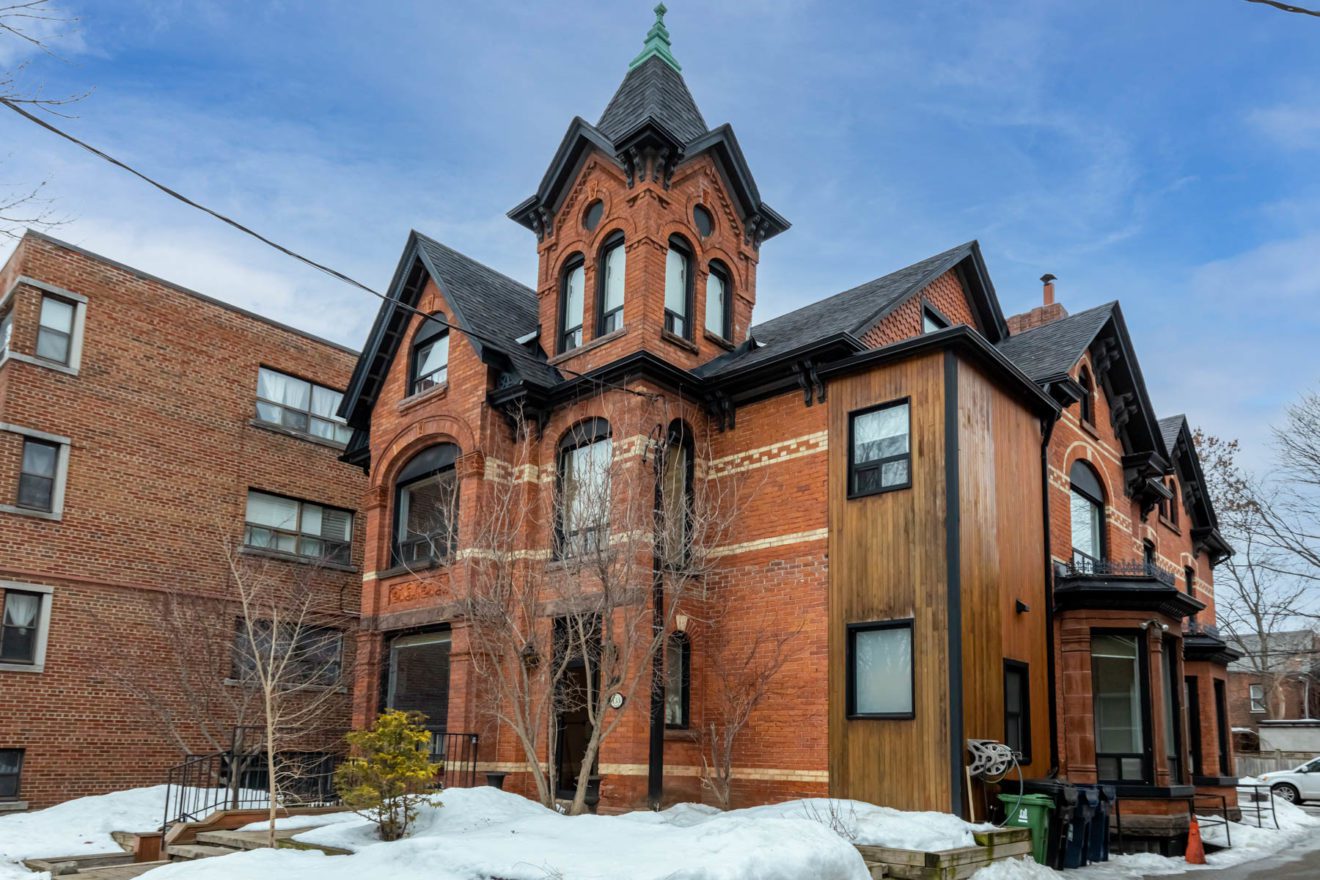In the landscape of property management services in Toronto, landlords, tenants, and property managers navigate a fast-moving market where clarity and protection are non-negotiable. A lease agreement isn’t just paperwork—it’s the backbone of a professional relationship that outlines expectations, limits risk, and sets the tone for the entire tenancy. Whether you’re handling single units or managing a diverse real estate portfolio, the strength of your lease determines more than legal compliance; it defines how issues are prevented and resolved.

At InTrust., we’ve worked with every kind of lease scenario across Toronto’s complex rental ecosystem—from short-term furnished rentals to long-term commercial arrangements. The key to consistency and control? Precision in your lease clauses. When these documents are thoughtfully crafted, disputes drop, operations run smoother, and everyone involved gains peace of mind.
Let’s take a closer look at the key lease clauses that belong in every well-structured agreement.
Identification of Parties and Property
This may seem basic, but it’s a cornerstone of any agreement. Clear identification of all parties—including full legal names—and a detailed description of the rental property avoids ambiguity. If you’re managing multi-unit buildings, specifying the exact unit number and postal address ensures legal enforceability. Attach a layout or unit sketch if necessary to reinforce clarity.
Also, if the property is owned by a corporation or held in a trust, this must be accurately reflected. Many professionals overlook these details, which can complicate things in the event of litigation.
Lease Term and Renewal Provisions
Lease duration isn’t just about marking a start and end date. The inclusion of renewal options, notice periods, and automatic conversion to month-to-month tenancy affects everything from vacancy planning to tenant satisfaction.
Will there be a fixed-term lease that automatically renews? Will the landlord or tenant need to give notice? Will rent increase after renewal, and if so, by how much? These specifics eliminate guesswork and reduce turnover disruption.
Security Deposit Terms
Ontario laws restrict how and when security deposits may be collected, but for other jurisdictions or cases where it applies, outline:
- Amount collected
- Purpose of the deposit
- How and when it will be returned
- Conditions under which deductions may be made
In Toronto, landlords typically collect first and last month’s rent instead of a traditional damage deposit. Your lease should reflect this distinction, ensuring both legality and clarity.
Use of Premises and Occupancy Limits
This clause clarifies what the property can be used for—residential only, or mixed-use? It should also set limits on the number of occupants, subletting restrictions, and business operations.
Overcrowding, unauthorized subletting, or home-based businesses can introduce risk to property value and liability insurance. Defining permitted uses also gives property managers enforcement leverage.
Include language like: “The Premises shall be used solely for residential purposes by no more than four individuals unless written consent is provided by the Landlord.”
Maintenance and Repairs: Who Does What?
This is one of the most contested areas in property management. Clearly stating the division of responsibility between landlord and tenant prevents disputes and damage.
Breakdown:
- Who handles routine maintenance (e.g., snow shoveling, lawn care)?
- Who covers repairs below a certain dollar amount?
- What must tenants report, and within what timeframe?
Professional-grade lease agreements also outline consequences for failure to report issues that escalate damage. A clause like: “Tenant shall report water leaks within 24 hours of discovery. Failure to do so may result in financial liability for resulting damage” protects the property and motivates accountability.
Entry and Inspection Rights
Tenants have privacy rights, but landlords and property managers must retain the right to inspect, show, or repair the property. In Ontario, landlords must provide 24 hours’ written notice before entering—except in emergencies.
Clearly state:
- Reasons for permissible entry
- Required notice period
- Acceptable hours for entry
- Emergency exception clauses
This prevents complaints and ensures that access issues don’t delay critical maintenance or resale plans.
Rules and Regulations
A lease should reference or include a rules and regulations addendum, especially in multi-unit or condo-style dwellings. These might include:
- Noise restrictions
- Garbage disposal procedures
- Parking assignments
- Common area usage
- Pet policies
Including a signature line on this addendum indicates tenant acknowledgment, helping you enforce house rules more effectively.
Insurance Requirements
Tenants are often unaware of the risks they carry without renters’ insurance. Strong lease agreements require tenants to carry personal liability and contents coverage—and may request proof of this coverage annually.
This clause protects both the landlord and the tenant in cases of fire, theft, or accidental damage caused by the tenant’s actions.
Include a statement like: “Tenant shall obtain and maintain a renter’s insurance policy with a minimum of $1,000,000 liability coverage and shall provide proof of insurance before occupancy.”
Default and Termination Clauses
Lease termination isn’t always about non-payment. Breaches of lease terms—unauthorized occupants, pet violations, or illegal activities—should be addressed through a clear default clause.
Outline the process:
- What constitutes a default
- Cure periods (how long the tenant has to fix the issue)
- Termination notice requirements
- Eviction triggers
This protects your legal position and helps resolve issues professionally before they escalate.
Legal Compliance and Severability
Every lease must include a clause acknowledging that all terms are subject to applicable laws. In Toronto, that means compliance with the Residential Tenancies Act (RTA), Human Rights Code, and applicable municipal bylaws.
The severability clause ensures that if one section of the lease is deemed unenforceable, the rest remains in force. It’s a basic but critical element often missed in DIY leases.
Dispute Resolution
How will disagreements be resolved? Mediation, arbitration, or tribunal? This clause outlines the framework before conflict occurs. It may refer to the Landlord and Tenant Board in Ontario, but in commercial leases, arbitration clauses may also be appropriate.
Setting a resolution process in writing gives all parties a roadmap if things go south—and avoids costly, time-consuming court battles.
Signatures and Witnesses
Every lease must be signed and dated by all parties. In cases of corporate landlords or tenants, include name and title of the signatory.
Witnesses or digital signature timestamps are also valuable, especially in litigation scenarios. Using property management software that timestamps and stores agreements can offer added protection.
Special Clauses (Unique Property or Tenant Considerations)
Some properties or arrangements require customized clauses:
- Furnished units with inventory lists
- Rent discounts for multi-year commitments
- Out clauses for corporate relocations
- Air conditioning usage and maintenance
- Window coverings and pest control
Tailor your lease to the asset. A strong general framework is critical, but the best property managers take it further—customizing terms without overcomplicating the lease.
Why Choose InTrust.?
At InTrust., we don’t just manage properties—we build systems that protect them. Every lease we handle is a product of legal precision, operational foresight, and 20+ years of industry expertise. We’ve seen what works, what breaks down, and how one clause can mean the difference between income protection and costly litigation.
Clients choose us because we bring structure where others bring shortcuts. Our leases are built to do more than comply—they prevent conflict, protect your assets, and keep tenants accountable. Whether you own a single condo or oversee an entire block, we ensure your interests are safeguarded with every signature.
When you partner with InTrust., you don’t just get documents. You get the backbone of better property management.

Questions About Commercial Real Estate?
See the services we offer to learn how we can help you achieve more with your asset.
Learn More

